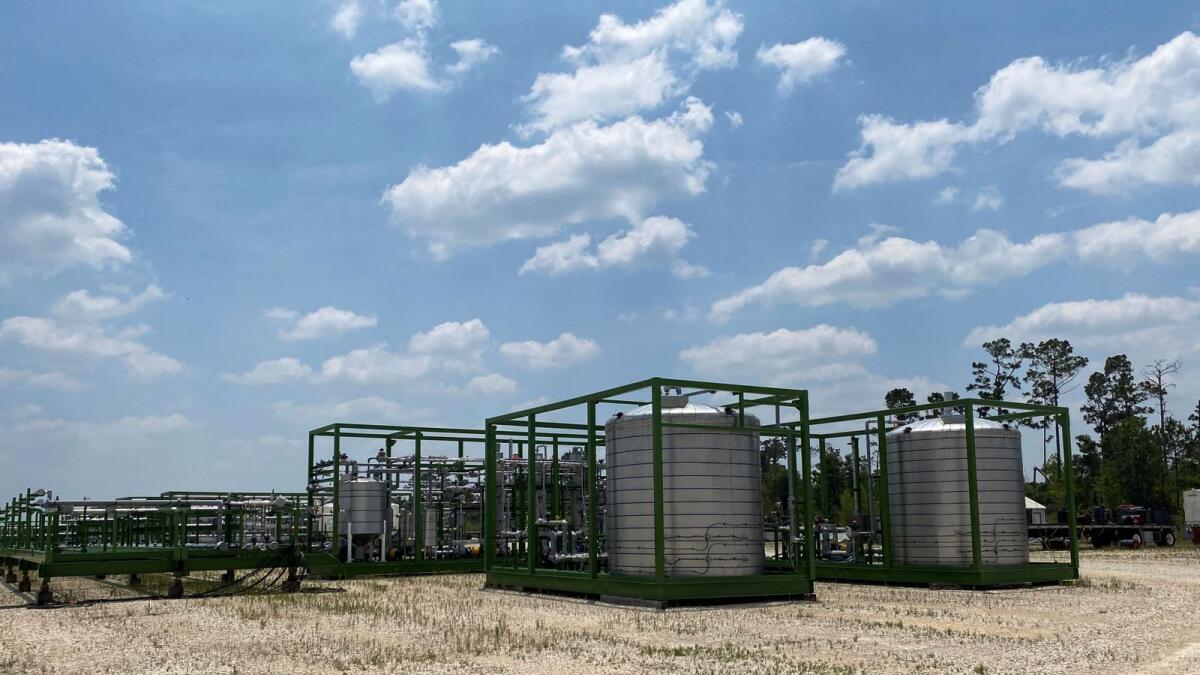In a significant development for the clean-energy transition, International Battery Metals (IBAT) has become the first company to commercially produce lithium with a new filtration technology. This breakthrough, taking place at a site in Utah controlled by US Magnesium, involves the production of nearly 5,000 metric tons of lithium per year using IBAT’s direct lithium extraction (DLE) technology. The industry has long awaited commercial level output, and the success of this process is expected to revolutionize lithium production for electric vehicle manufacturers and other industries.
The direct lithium extraction technology developed by IBAT is a game-changer in the industry, with the potential to transform the speed and efficiency of lithium production. By extracting lithium from salty brine deposits, DLE eliminates the need for evaporation ponds and open-pit mines, which are water-intensive and have significant environmental footprints. With DLE proven on a commercial scale, the industry is expected to generate annual revenue of $10 billion within a decade, similar to the impact that fracking had on US oil production.
IBAT’s DLE technology is based on the work of chairman John Burba, who developed the process at Dow Chemical in the 1980s. By focusing on lithium extraction from brines, DLE offers a more sustainable and cost-effective alternative to traditional mining methods. While different DLE technologies exist, IBAT’s portable and scalable plants have been successful in commercial production, outpacing competitors like Standard Lithium and Rio Tinto. The company’s method is poised to boost global lithium supply and meet the growing demand for electric vehicle batteries.
The global lithium reserves are estimated to be predominantly found in brine deposits across various regions, making it essential to develop efficient extraction methods to meet demand. DLE technologies, resembling household water softeners, can extract upwards of 90% of lithium from brines, compared to around 50% using traditional ponds. While no single DLE technology is expected to emerge as a global standard due to variations in chemical compositions of brine deposits, IBAT’s success demonstrates the potential for widespread adoption of this innovation.
The recyclability and small footprint of IBAT’s DLE plants make them an attractive option for lithium producers looking to enhance efficiency and reduce environmental impact. By utilizing adsorption materials developed by Burba, IBAT’s process offers a portable and cost-effective solution for lithium extraction. The company’s focus on water recycling and sustainable practices align with the industry’s increasing emphasis on environmental responsibility. With plans to expand production and market their technology globally, IBAT is set to play a significant role in shaping the future of lithium production.
As the demand for lithium continues to rise, driven by the growth of electric vehicles and renewable energy storage systems, innovative technologies like DLE are crucial for ensuring a stable and sustainable supply chain. IBAT’s successful commercial production of lithium marks a major milestone in the industry’s evolution, signaling a shift towards more efficient and environmentally friendly extraction methods. With ongoing advancements in direct lithium extraction technologies, the future looks promising for lithium producers and consumers alike.





















